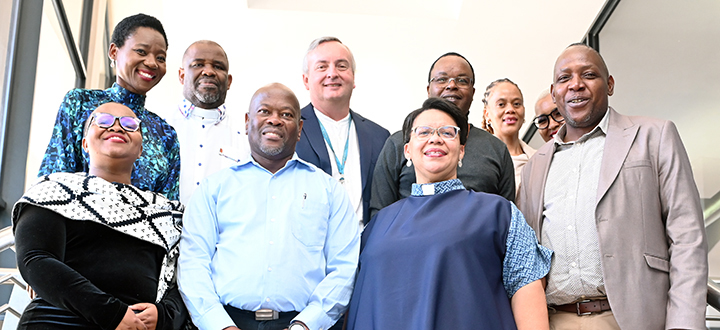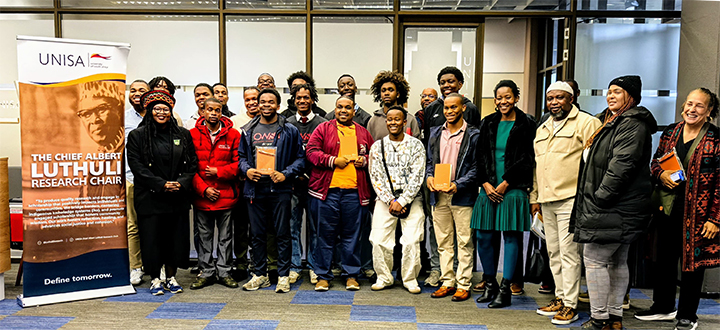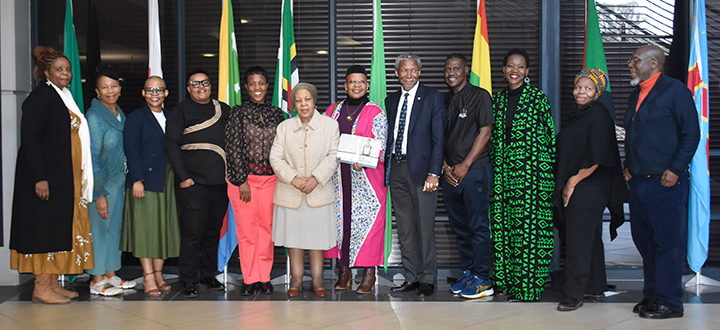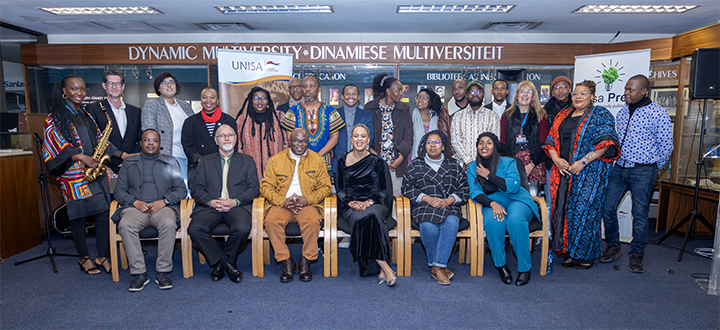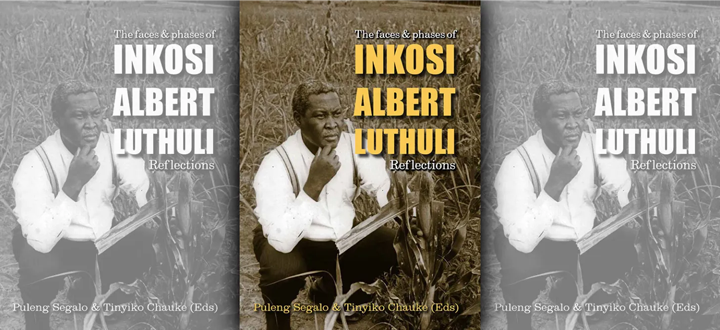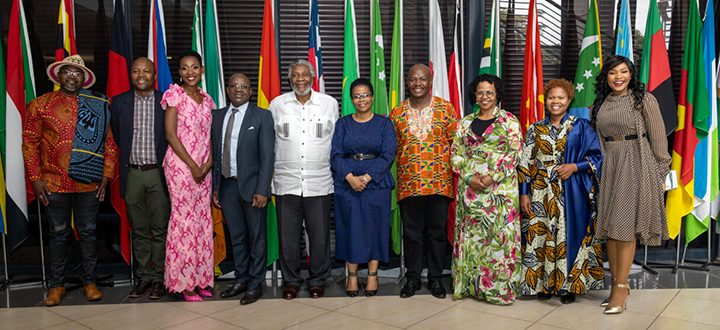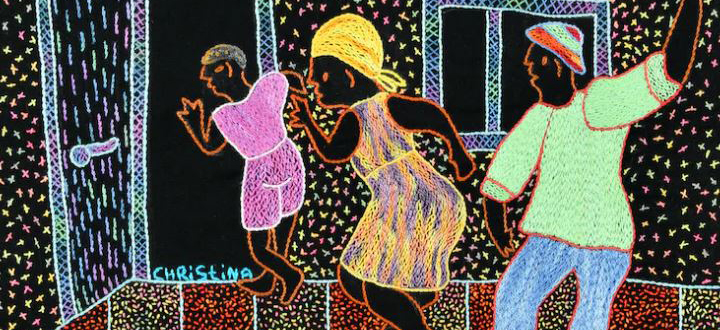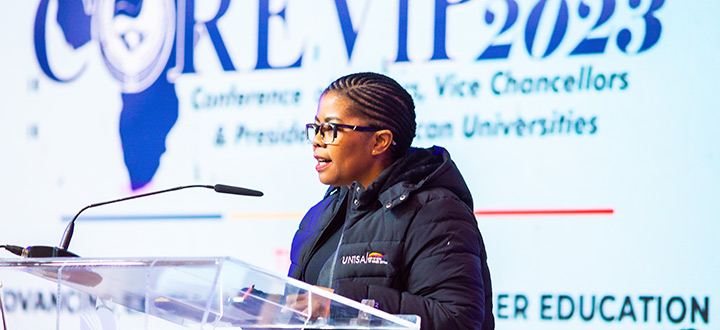Chief Albert Luthuli Research Chair
RDP of the soul: Recentring the church’s role in society
Maybe it is time to dismantle the “traditional pulpit” so that church leaders are right in the centre among the people and not detached from everyday realities and voices. This was one of the thought-provoking messages at a symposium hosted by the Chief Albert Luthuli Research Chair during Unisa’s Research and Innovation Week. Read more
Morehouse College Oprah Winfrey Fellows hosted at Unisa
The university's Chief Albert Luthuli Research Chair recently hosted Morehouse College Oprah Winfrey Fellows and Unisa students at the Unisa Library for a transformative dialogue on the various forms of global crises and how they affect academic spaces. Read more
Inyathi: Theorising South African Women's Intellectual Legacies
To celebrate African women scholars, activists and artists, and to support and build on women’s collective cultural inheritance, Unisa's Department of Leadership and Transformation recently held a thought-provoking book discussion on Inyathi Ibuzwa Kwabaphambili: Theorising South African Women’s Intellectual Legacies. Read more
New open access book unveils The Faces and Phases of Inkosi Albert Luthuli
Unisa Press has published The Faces and Phases of Inkosi Albert Luthuli, an open-access book edited by Prof Puleng Segalo and Dr Tinyiko Chauke. The book explores Luthuli's legacy and its relevance to today's social and political challenges, urging readers to reflect on ongoing injustices in South Africa. Read more
New essays offer fresh insights into Albert Luthuli’s enduring example of integrity, selflessness
The Faces and Phases of Inkosi Albert Luthuli: Reflections reveals previously untold stories and offers new perspectives on Luthuli’s legacy. Read more
Reliving Luthuli: Reflecting on the past to reimagine the future
Speaking at Unisa's 5th Chief Albert Luthuli Research Chair Founders Lecture themed "Pan-Africanism: revisiting (looking back) and reimagining (looking forward)", Prof Puleng Segalo said the chair is deliberate in embarking on projects that attend to the revisiting and retelling of African stories. Read more
Rehab for South Africa’s female inmates focuses on domestic chores – instead of finding good work
Corrections facilities are supposed to help rehabilitate offenders. However, during apartheid, South Africa’s correctional system was a pillar of the repressive, discriminatory laws. It was used to punish those – mainly the black majority – perceived to be a threat to the white minority regime. Read more
The power of needlework: how embroidery is helping South African women tell unspeakable stories
In the first three weeks of that lockdown the Gender Based Violence Command Centre, designed to support victims of gender-based violence (GBV), recorded more than 120,000 victims. Also in its 2019/2020 crimes statistics, the South African Police Services indicated that an average of 116 rape cases were reported each day. Read more
Stimulate discussion, exchange information and encourage research cooperation among African researchers
Africa’s position in the global knowledge production ecosystem needs to change significantly. African knowledge systems, languages, knowledge actors and institutions must take their rightful place in global thought processes. Even more critical is the central place that such repositioning is bound to have in upholding African dignity. In this essay, we argue that the current global ecosystem of knowledge production exhibits multiple layers of injustices and inequities entrenched in its orientations, institutions, policy and legal frameworks and practices. Read more
Unisa @ 150: Historic transformative research charter launched
Speaking at the launch of a new Africa Charter for advancing transformative research collaborations between Africa and the rest of the world, Prof Puleng LenkaBula, Unisa Principal and Vice-Chancellor, said that the ambitious initiative creates a platform to reframe collaborations in the spirit of mutual respect among and shared aspirations of participants. Read more
